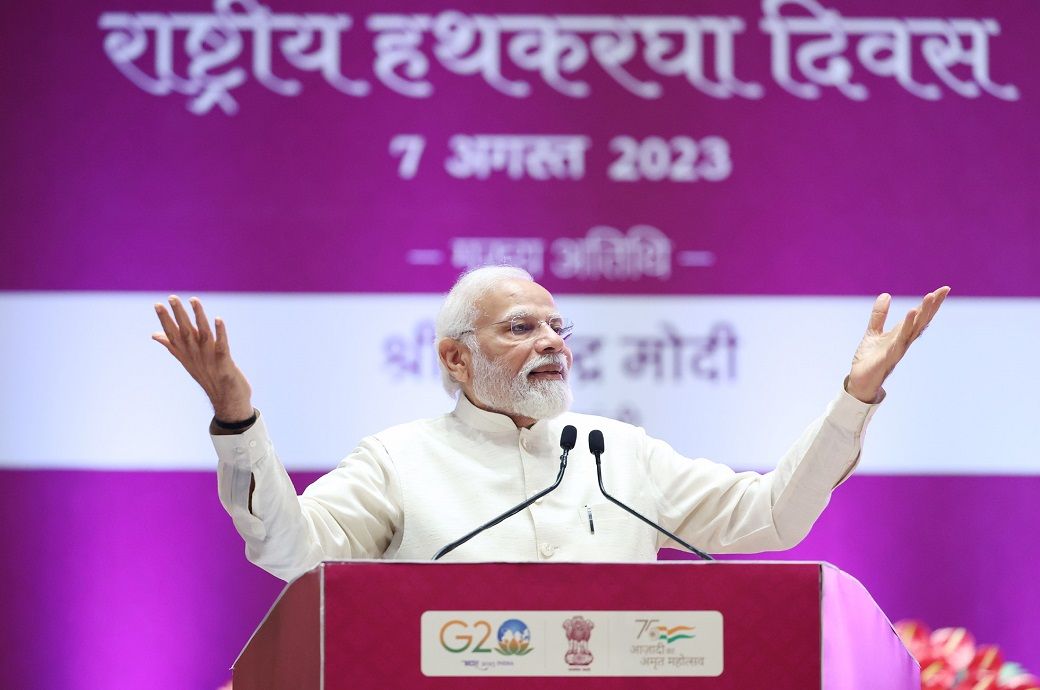
Highlighting the significance of the Indian handloom industry, Prime Minister Modi launched the e-portal 'Bhartiya Vastra evam Shilpa Kosh—A Repository of Textiles & Crafts', developed by the National Institute of Fashion Technology (NIFT). He also inaugurated a special three-day exhibition showcasing exclusive handloom, handicraft, and khadi products, the ministry of textiles said in a press release.
“The India of today is not just ‘Local for Vocal’ but also providing a global platform to take it to the world,” said Prime Minister Modi.
In his address, the Prime Minister noted the industry’s contribution to social justice and employment, emphasising the support schemes implemented for weavers, mostly coming from dalit, backward, pasmanda, and tribal societies. He further expressed satisfaction with the increase in employment and income due to government efforts and schemes.
The Prime Minister also spoke about the 'One District One Product' scheme to promote special products from every district and mentioned the upcoming Ekta Mall in every state capital to promote handicrafts and handlooms. Additionally, he talked about the efforts to link artisans to the GeM Portal (Government e-Marketplace) to ensure that handloom sector benefits from Digital India.
Union ministers Narayan Tatu Rane, Darshana Jardosh, and Bhanu Pratap Singh Verma also attended the event, hosted jointly by the ministry of textiles and ministry of micro, small & medium enterprises.
The mega handloom and khadi celebration included representatives from various institutions, including handloom clusters, NIFT campuses, Weaver Service Centres (WSCs), Indian Institute of Handloom Technology (IIHT), National Handloom Development Corporation (NHDC), Handloom Export Promotion Council (HEPC), Khadi and Village Industries Commission (KVIC) institutions, and state handloom departments. More than 7,500 handloom weavers in 75 clusters across the country also viewed the event live on Doordarshan.
As part of the National Handloom Day, various exhibitions and educational initiatives were also organised at Handloom Haat, Dilli Haat, and the National Crafts Museum to create greater awareness and provide direct access to customers, as well as a deeper understanding of Indian handlooms to over 10,000 students from 75 schools.
Fibre2Fashion News Desk (DP)